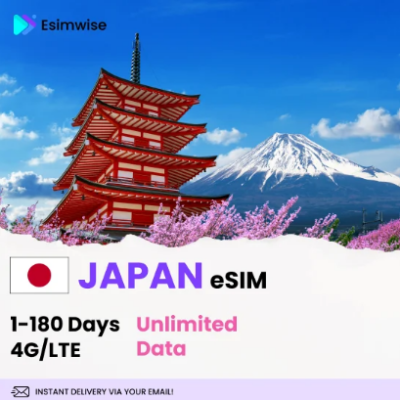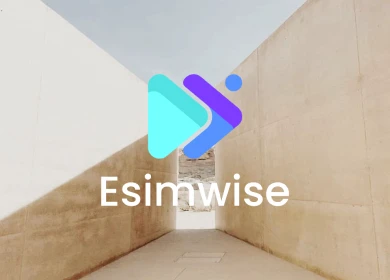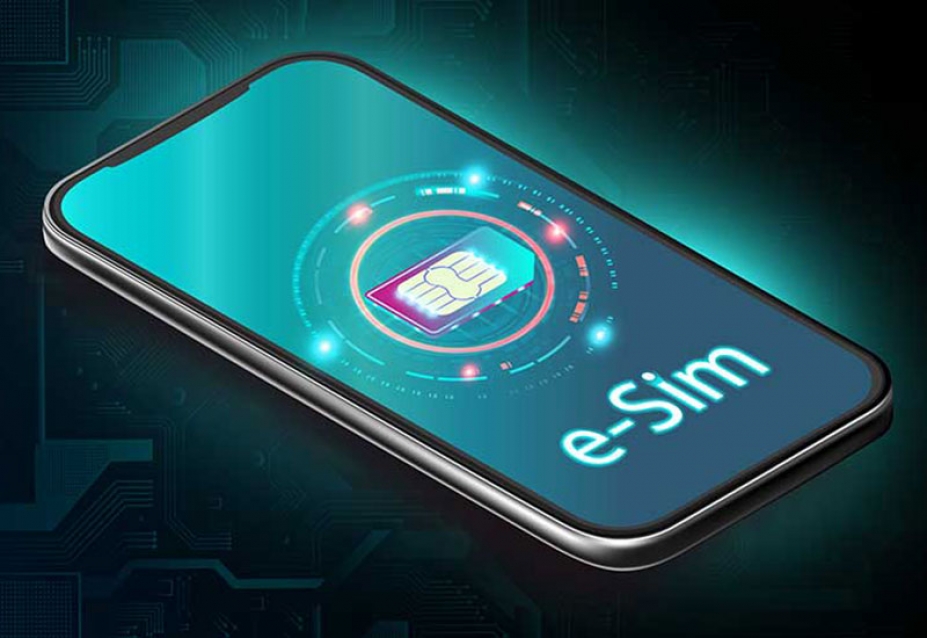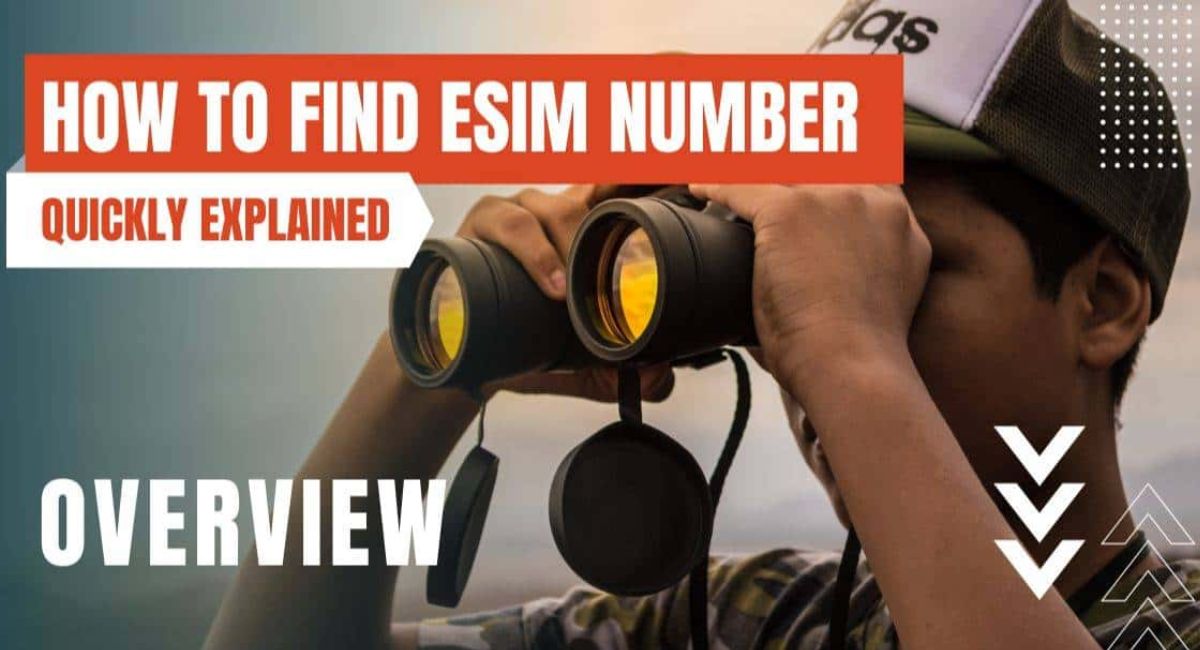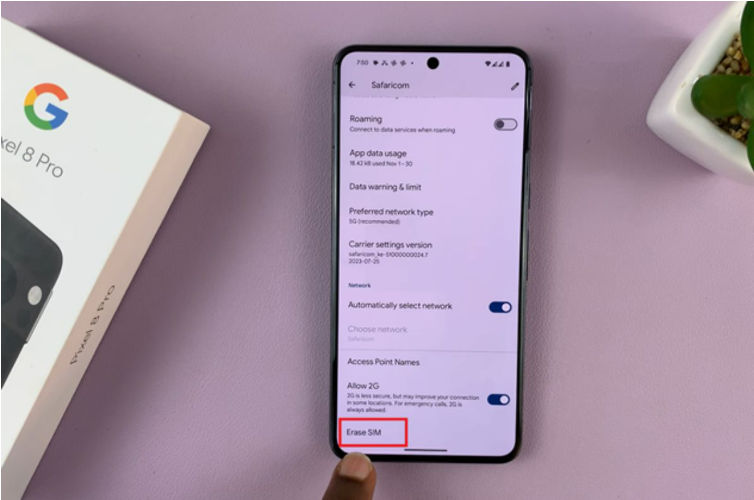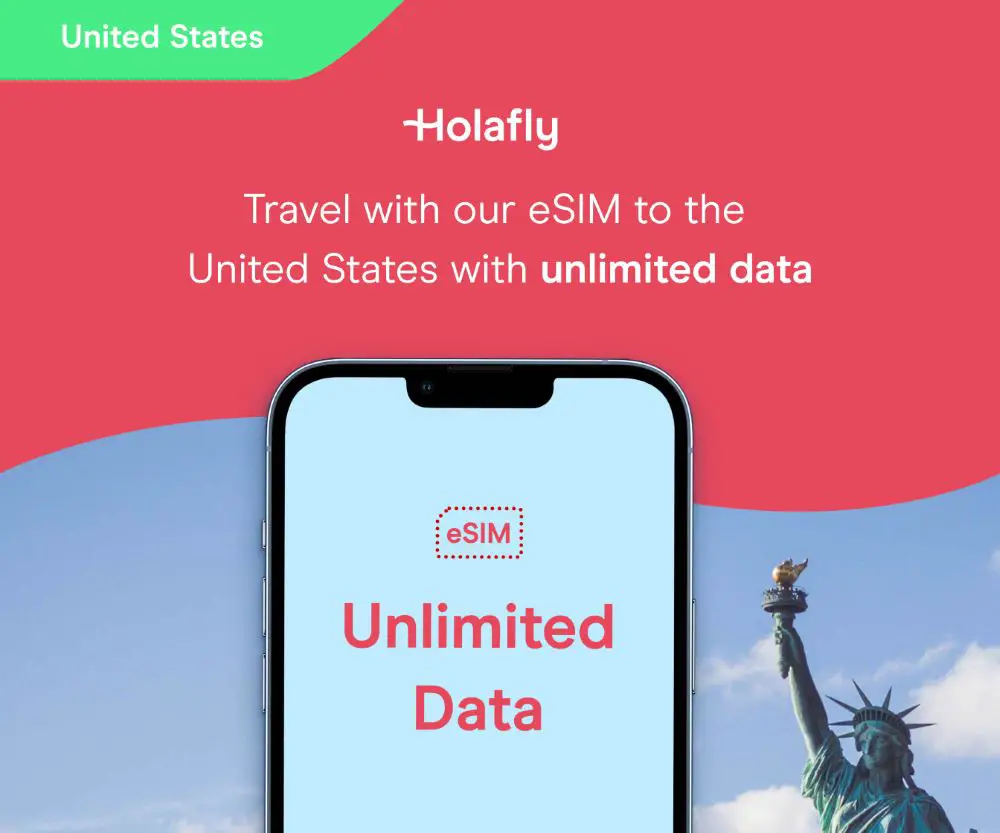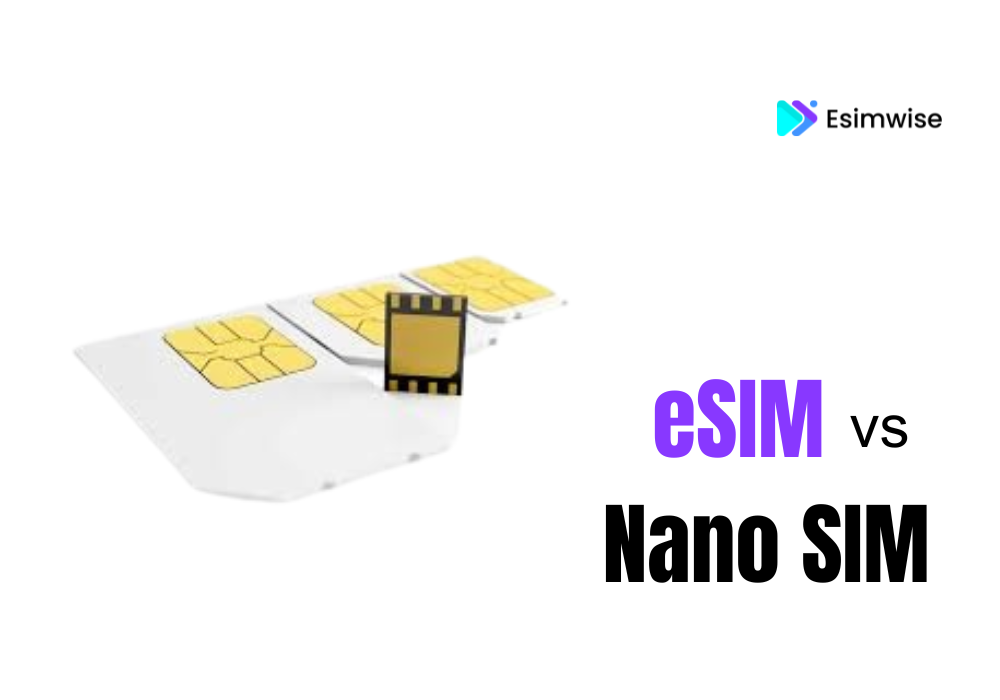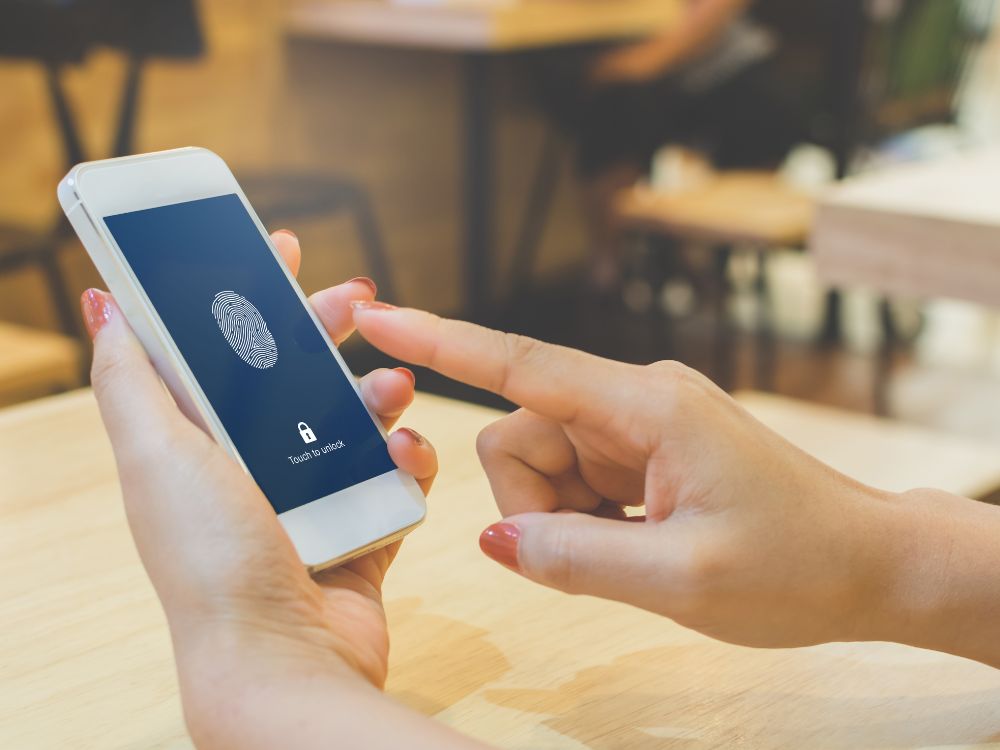Traveling is delightful, yet managing different SIM cards, language barriers at local stores, and swapping physical cards can be cumbersome. During my recent exploration of options in Japan, I stumbled upon eSIM services that truly stand out for their hassle-free activation, offering seamless high-speed data without needing a physical SIM card.
I’ve curated a list of the best eSIM for Japan, carefully selected to ensure uninterrupted connectivity in bustling cities, remote towns, and picturesque rural areas. If you’re curious to know which ones made the cut and can elevate your travel experience, read on for a Japan eSIM comparison that provides insights to the eSIM service here.
The best eSIM for Japan
1. Phonecaswise
Phonecaswise offers a seamless connectivity solution for your journey to Japan, ensuring a fast and hassle-free experience. With our Japan eSIM service, users can enjoy unlimited data by simply scanning a quick QR code, providing an instant and reliable connection.
The service operates on versatile 2G, 3G, and 4G networks, delivering comprehensive connectivity options for users traveling throughout the country. seamless communication and access to essential apps. Users can choose from data packages ranging from 0.5GB to an ample 52GB, allowing for customization based on individual data usage needs.
The data packages provided by Phonecaswise are tailored for optimal 4G/LTE performance, ensuring that users can enjoy high-speed internet access throughout their stay in Japan. Tethering and hotspot capabilities are also included, allowing users to share their connection with other devices seamlessly.
One of the standout features of Phonecaswise is the built-in VPN, providing unrestricted browsing capabilities for users. This feature enhances security and privacy, allowing users to confidently access online content without constraints. Additionally, Phonecaswise enables users to keep their WhatsApp number on their mobile phones, eliminating the need for roaming or dependence on public WiFi networks. This ensures that users can stay connected quickly and efficiently throughout their journey.
What I like:
- Flexible data plan options
- High-speed data
- Built in VPN for secure connectivity
What I don’t like:
- None
Get your Japan eSIM now!
2. Mobal
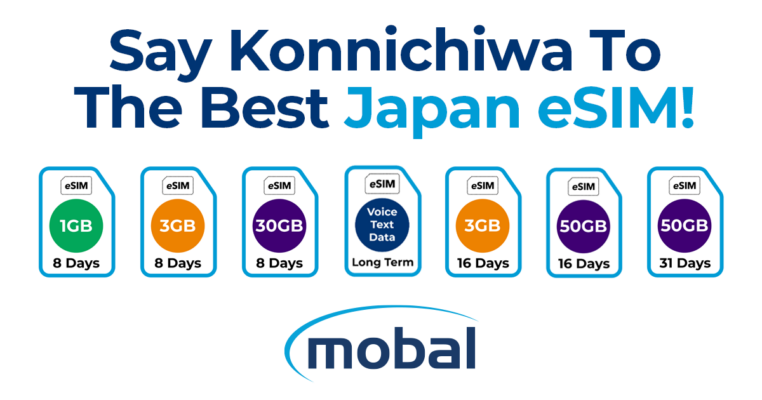
The Mobal eSIM is my preferred choice for its seamless connectivity in Japan. For users seeking tailored data plans, Mobal offers a variety of options ranging from 1GB to 50GB. These plans cater to diverse data usage needs, from light data users to those with more data-intensive requirements.
The pricing structure is competitive, and users can choose plans based on their preferred data allowances and durations, ensuring a customized experience.
Moreover, Mobal offers optional local phone numbers, a valuable add-on for those opting for extended plans. This feature enables users to receive calls and texts within Japan, enhancing their local communication experience.
The network strength of Mobal eSIM is noteworthy, as it primarily utilizes the reliable Docomo and SoftBank networks. This robust network support is fundamental in providing users with a consistently fast and reliable internet connection.
What I like:
- Reliable network with Docomo and SoftBank presence
- Optional local phone number: Stay connected for calls and texts within Japan (longer plans)
- English and Japanese websites and customer service for support
What I don’t like:
- No voice calls are included
- Limited top-up options
- Not suited for long-term stays
3. Ubigi

The Ubigi eSIM is also one of my favorite eSIMs for Japan travel. At the forefront of its features is the global eSIM functionality, allowing users to maintain connectivity in over 200 destinations without swapping physical SIM cards. The instant setup process lets users download and activate their eSIM profiles directly onto compatible devices within minutes.
With a commitment to flexibility, Ubigi’s prepaid plans boast no contracts or hidden fees, providing travelers with the freedom to select data packages that align with both their travel duration and usage preferences. The inclusion of multiple network partners further enhances its appeal, as Ubigi collaborates with reliable local networks in each destination, guaranteeing optimal coverage and connectivity wherever the journey takes you.
Ubigi’s data plans are diverse, accommodating various travel styles and data usage needs. Ranging from 1GB to 100GB, with validity periods spanning from 1 day to 1 year, these plans cater to a wide spectrum of preferences. For those venturing into the vibrant landscape of Japan, Ubigi offers competitive plans such as a 10GB package for 30 days starting from ¥4,950, ensuring ample data for a fulfilling travel experience.
In addition to its user-friendly approach, Ubigi extends further support by offering free incoming calls and texts in select destinations. With multilingual support available on its website and customer service, Ubigi eSIM emerges as the best eSIM to use in Japan.
What I like:
- Global coverage in over 200 destinations
- Free incoming calls and texts in some regions
- replenish your data effortlessly without interrupting your connection
What I don’t like:
- Primarily data-only plans, separate options needed for voice calls
4. Holafly
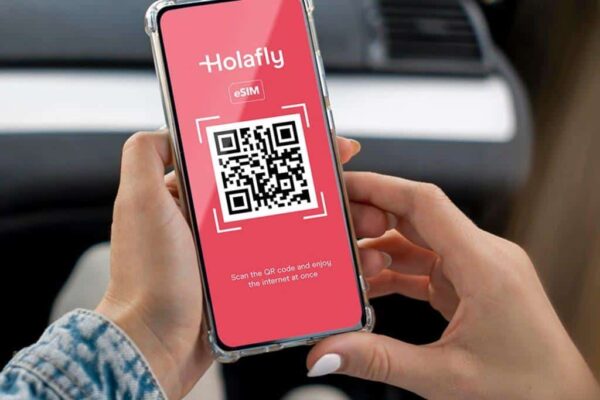
Holafly stands out as a go-to choice for eSIM providers Japan. The global reach of Holafly spans over 160 destinations worldwide, offering a seamless connectivity experience without the need for physical SIM cards.
Holafly’s data plans, ranging from 3GB to unlimited data, with validity periods stretching from 1 day to 1 year, provide versatility for different travel styles. Sample plans for popular destinations, such as a 15GB package for 30 days in Japan starting from ¥6,950, showcase the competitive pricing structure.
The convenience extends to the intuitive Holafly app and website, allowing users to effortlessly top up their data on the go and even share their data allowance with other devices through a Wi-Fi hotspot, a feature available in specific plans.
To sum up, Its user-friendly setup, comprehensive network coverage, and flexible data plans make it a valuable companion for global adventures.
What I like:
- Utilize local operators for optimal coverage in each destination
- Share your data allowance with other devices through Wi-Fi hotspot
- Website and customer service available in English, Spanish, and other languages
What I don’t like:
- None
5. Airlo

Airalo eSIM proves to be a compelling choice for travelers and short-term residents in Japan. With instant connectivity, users can download and activate their eSIM profiles directly to compatible devices in minutes, even before arriving in Japan.
The network strength of Airalo is a standout feature, primarily relying on the Docomo and SoftBank networks to provide extensive coverage across both urban and rural areas. This ensures a stable and reliable connection, whether users are navigating cityscapes, exploring rural landscapes, or simply staying in touch with loved ones. The global coverage ensures that users can enjoy seamless connectivity throughout Japan.
Airalo’s data plans cater to a variety of needs, offering flexibility and affordability. The availability of different options, ranging from a small 1GB plan for 7 days to larger 50GB packages for 30 days, accommodates both quick trips and extended stays with heavier data usage.
One notable aspect that enhances the user experience is Airalo’s commitment to customer support. With assistance available 24/7 and support provided in multiple languages, users can seek help whenever needed, ensuring a smooth and reliable connectivity experience.
What I like:
- Stay connected throughout Japan with Docomo and SoftBank coverage
- Skip the hassle of finding and purchasing physical SIM cards at the airport
- Affordable pricing
What I don’t like:
- None
6. Flexiroam

Flexiroam eSIM emerges as the best eSIM for Japan for tech-savvy travelers seeking seamless connectivity. Its commitment to providing extensive coverage in Japan is evident through its partnerships with various reliable networks, including Docomo, SoftBank, and KDDI. This ensures a robust and dependable connection across both urban and rural landscapes, facilitating uninterrupted online experiences, social media usage, and video calls.
The flexibility of Flexiroam’s data plans is a standout feature, catering to diverse travel styles and data usage needs. With plans ranging from 1GB to 100GB and validity periods spanning from 1 day to 1 year, users have the freedom to choose packages that align with their preferences. Notably, the data sharing option, available in specific plans, enables users to share their data allowance with other devices through Wi-Fi hotspot functionality.
Flexiroam’s user-friendly app adds to the overall convenience, allowing users to easily top up their data on the go. In terms of pricing, Flexiroam’s transparency stands out, with data plans generally considered competitive compared to both eSIM providers and traditional roaming charges.
What I like:
- Stay connected throughout Japan with reliable network partnerships
- Competitive pricing
- Data sharing and top-up options
What I don’t like:
- None
Buy eSIM for Japan travel: What to consider?
Of course, when choosing the best eSIM for Japan list, I have set some essential criteria to find a suitable option. Here they are:
Compatibility with your device
To use eSIM, you need to ensure that your device supports eSIM technology. Most modern smartphones and some tablets are equipped with eSIM capabilities. The best way is to check your device’s specifications or contact the manufacturer to confirm.
Tips: Check out the latest phones with eSIM here.
Network coverage and speed
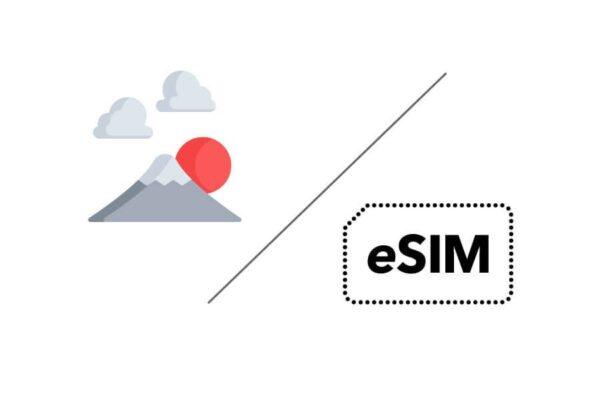
This is the most important part of finding the best eSIM for Japan. You should research the eSIM providers available for Japan and compare their network coverage and speed.
Moreover, you need to check if the eSIM provider has good coverage in the specific areas you plan to visit within Japan. Additionally, consider the data speed offered by the provider, especially if you require a reliable and fast internet connection.
Data plans and packages
You should compare the data plans offered by different eSIM providers to find a suitable one. Plus, you need to consider your data usage needs, such as browsing, navigation, and social media. Some providers may offer unlimited data for a certain duration or a fixed data limit.
Activation process and lead time
You can search for the activation process for the eSIM and consider the lead time required for activation on YouTube or in the FAQs section. Some eSIM providers allow for instant activation, while others may require some time. Make sure to activate your eSIM well before your departure to avoid any connectivity issues upon arrival in Japan.
Customer support and reviews
It is essential to have reliable customer support in case you encounter any issues during your travel. Additionally, you can read reviews from other travelers who have used the eSIM service in Japan to get insights into the reliability and performance of the provider.
FAQs
1. How to buy eSIM in Japan?
Buying an eSIM in Japan is a straightforward process that comes with several advantages compared to traditional SIM cards. Before your trip, you need to choose an eSIM provider based on your preferences and needs. Popular options include Airalo, Japan Wireless, and eSIM Japan. Consider factors such as data allowance, validity period, and price to select the plan that best suits your requirements.
Once you’ve decided on a provider and plan, purchase your eSIM online through the provider’s website or app. Payment is typically done securely through online gateways.
Upon arriving in Japan, connect to Wi-Fi and download the eSIM provider’s app if you haven’t done so already. Most providers will send you a QR code or an activation link via email. Now, you can scan the QR code or enter the activation link to download and install the eSIM profile onto your phone.
2. How much data do I need for Japan travel?
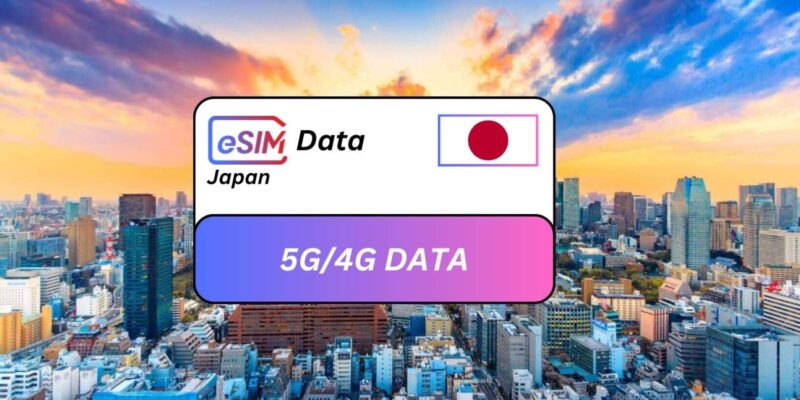
For light users engaged in basic browsing, maps, and occasional social media, a daily usage range of 500 MB to 1 GB is typically sufficient. If your travel extends to one or two weeks, consider allocating between 3.5 GB to 14 GB based on your anticipated usage.
Moderate users, engaging in activities like streaming music, podcasts, and occasional video content, may require a daily data usage of 1 GB to 3 GB. For a one-week trip, plan for 7 GB to 21 GB, while a two-week itinerary might necessitate between 14 GB to 42 GB.
For heavy users involved in frequent video calls, streaming movies, or online gaming, daily usage may range from 3 GB to 6 GB or more. A one-week trip could warrant 21 GB to 42 GB, and for a two-week excursion, consider 42 GB or opt for unlimited plans.
3. Does Japan eSIM come with a phone number?
The majority of eSIMs for Japan are data-only, providing internet access without a phone number. While these plans are often more affordable and easier to acquire, they may not be the best fit if you require the ability to make or receive calls and texts in Japan.
Some providers do offer eSIMs with a local Japanese phone number included. Though less common, these plans prove convenient for making calls and sending texts within Japan, especially for reservations or emergencies. However, such plans may come at a higher cost than data-only options, and some may require additional documentation or identity verification.
Here’s a quick overview of popular eSIM providers in Japan and their offerings:
- Airalo: Offers data-only eSIMs without a phone number.
- Japan Wireless: Provides both data-only and eSIMs with a phone number (select plans).
- eSIM Japan: Offers both data-only and eSIMs with a phone number (select plans).
- The choice between a data-only eSIM and one with a phone number ultimately depends on your specific needs and priorities. Consider how extensively you plan to use your phone for calls and texts in Japan, and select the option that aligns best with your travel style.
4. Is there any alternative for eSIM when traveling to Japan?
Exploring connectivity options while traveling in Japan opens up a world of choices beyond just eSIMs. Traditional SIM cards offer the convenience of easy access upon arrival, providing various plans suitable for different data needs. However, the hassle of physically swapping cards may be a drawback for some.
Pocket Wi-Fi emerges as a group-friendly alternative, allowing simultaneous device connections and unlimited data for seamless internet use. However, lugging around an additional device and monitoring battery life can be considered.
Public Wi-Fi, while free and widespread, is best suited for light internet use due to limited security and occasional speed issues. International roaming provides familiarity but comes at a high cost.
Wrap up
In conclusion, the article has provided the best eSIM for Japan for you to choose from. Whether you prioritize features like instant activation, global coverage, flexible data plans, or competitive pricing, the highlighted eSIM providers cater to diverse preferences and needs
Finally, I hope you find this article helpful and informative. Leave a comment below for the topic you want to read the next time! Thanks for reading.




